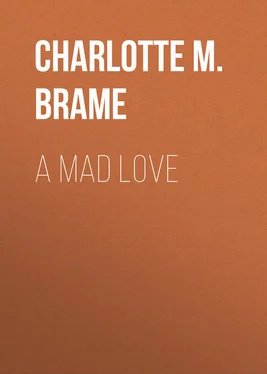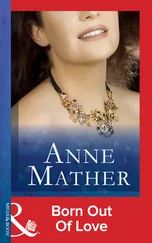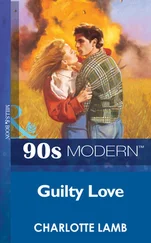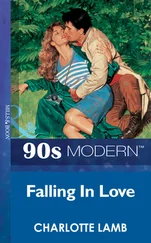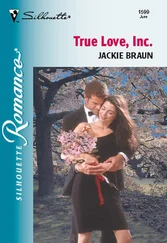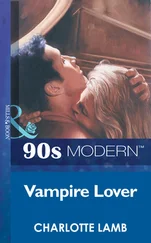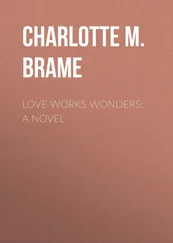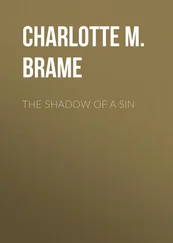Charlotte Brame - A Mad Love
Здесь есть возможность читать онлайн «Charlotte Brame - A Mad Love» — ознакомительный отрывок электронной книги совершенно бесплатно, а после прочтения отрывка купить полную версию. В некоторых случаях можно слушать аудио, скачать через торрент в формате fb2 и присутствует краткое содержание. Жанр: foreign_antique, foreign_prose, на английском языке. Описание произведения, (предисловие) а так же отзывы посетителей доступны на портале библиотеки ЛибКат.
- Название:A Mad Love
- Автор:
- Жанр:
- Год:неизвестен
- ISBN:нет данных
- Рейтинг книги:3 / 5. Голосов: 1
-
Избранное:Добавить в избранное
- Отзывы:
-
Ваша оценка:
- 60
- 1
- 2
- 3
- 4
- 5
A Mad Love: краткое содержание, описание и аннотация
Предлагаем к чтению аннотацию, описание, краткое содержание или предисловие (зависит от того, что написал сам автор книги «A Mad Love»). Если вы не нашли необходимую информацию о книге — напишите в комментариях, мы постараемся отыскать её.
A Mad Love — читать онлайн ознакомительный отрывок
Ниже представлен текст книги, разбитый по страницам. Система сохранения места последней прочитанной страницы, позволяет с удобством читать онлайн бесплатно книгу «A Mad Love», без необходимости каждый раз заново искать на чём Вы остановились. Поставьте закладку, и сможете в любой момент перейти на страницу, на которой закончили чтение.
Интервал:
Закладка:
Round and round went the wheel; on sunlight days the sun glinted on the sullen waters until they resembled a sheet of gold covered with white, shining foam. Green reeds and flowers that love both land and water fringed the edges of the clear, dimpling pool; the alder-trees dipped their branches in it; the great gray stones, covered with green moss, lay here and there. It was a little poem in itself, and the beautiful girl who sat in the moonlight read it aright.
CHAPTER III.
THE MEETING AT THE MILL
In the depths of the water she saw the reflection of the shining stars; she watched them intently; the pure, pale golden eyes. A voice aroused her – a voice with tone and accent quite unlike any other voice.
"I beg your pardon," it said, "could you show me the way to Rashleigh? I have lost myself in the wood."
Raising her eyes she saw the gentleman who had raised his hat as he passed her in the morning. She knew that he recognized her by the light that suddenly overspread his face.
"Rashleigh lies over there," she replied. "You have but to cross the field and pass the church."
"Even that," said the stranger, with a careless laugh, "even that I am not inclined to do now. It is strange. I am afraid you will think me half mad, but it seems to me that I have just stepped into fairy land. Two minutes since I was on the bare highway, now I see the prettiest picture earth has to offer."
"It is pretty," she replied, her eyes looking at the clear, dimpling pool; "prettier now even than when the sun shines on it and the wheel turns."
She had told him the way to Rashleigh, and he should have passed on with a bow, but this was his excuse. The moon was shining bright as day, the wind murmured in the alder trees, the light lay on the clear, sweet, fresh water; the music of the water as it fell was sweet to hear. Away in the woods some night bird was singing; the odor of the sleeping flowers filled the air; and there on the green bank, at the water's edge, sat the most beautiful girl he had ever seen in his life.
The moonlight fell on her exquisite southern face; it seemed to find its home in the lustrous depths of her dark eyes; it kissed the dark ripples of her hair, worn with the simple grace of a Greek goddess; it lay on the white hands that played with the tufted grass.
He was young and loved all things beautiful, and therefore did not go away. His mind was filled with wonder. Who was she – this girl, so like a young Spanish princess! Why was she sitting here by the mill-stream? He must know, and to know he must ask.
"I am inclined," he said, "to lie down here by this pretty stream, and sleep all night under the stars; I am so tired."
She looked at him with a quick, warm glow of sympathy.
"What has tired you?" she asked.
He sat down on one of the great gray stones that lay half in the water, half on the land.
"I have lost myself in the Leigh woods," he said. "I have been there many hours. I had no idea what Leigh woods were like, or I should not have gone for the first time alone."
"They are very large and intricate," she said; "I can never find the right paths."
"Some one told me I should see the finest oak-trees in England there," he said, "and I have a passion for grand old oaks. I would go anywhere to see them. I went to the woods and had very soon involved myself in the greatest difficulties. I should never have found the way out had I not met one of the keepers."
She liked to listen to him; the clear, refined accent, the musical tone; as she listened a longing came over her that his voice might go on speaking to her and of her.
"Now," he continued, embarrassed by her silence, "I have forgotten your directions; may I ask you to repeat them?"
She did so, and looking at her face he saw there was no anger, nothing but proud, calm content. He said to himself he need not go just yet, he could stay a few minutes longer.
"Do you know that beautiful old German ballad," he said,
"'In sheltered vale a mill-wheel
Still tunes its tuneful lay'?"
"No; I never heard or read it," she answered. "Say it for me."
"'In sheltered vale a mill-wheel
Still tunes its tuneful lay.
My darling once did dwell there,
But now she's far away.
A ring in pledge I gave her,
And vows of love we spoke —
Those vows are all forgotten,
The ring asunder broke.'"
"Hush," she said, holding up one white hand; "hush, it is too sad. Do you not see that the moonlight has grown dim, and the sound of the falling waters is the sound of falling tears?"
He did not seem to understand her words.
"That song has haunted me," he said, "ever since I heard it. I must say the last verse; it must have been of this very mill-wheel it was written.
"'But while I hear the mill-wheel
My pains will never cease;
I would the grave could hide me,
For there alone is peace.'"
"Is it a love story?" she asked, pleased at the pathos and rhythm of the words.
"Yes; it is the usual story – the whole love of a man's heart given to one not worthy of it, the vows forgotten, the ring broken. Then he cries out for the grave to hide himself and his unhappy love."
She looked up at him with dark, lustrous, gleaming eyes.
"Does all love end in sorrow?" she asked, simply.
He looked musingly at the moonlit waters, musingly at the starlit sky.
"I cannot tell," he replied, "but it seems to me that it ends more in sorrow than in joy. I should say," he continued, "that when truth meets truth, where loyalty meets loyalty, the ending is good; but where a true heart finds a false one, where loyalty and honor meet lightness and falsehood, then the end must be bad."
Leone seemed suddenly to remember that she was talking to a stranger, and, of all subjects, they had fallen on love.
"I must go," she said, hurriedly. "You will remember the way."
"Pray do not go – just this minute," he said. "History may repeat itself; life never does. There can never be a night half so fair as this again; the water will never fall with so sweet a ripple; the stars will never shine with so bright a light; life may pass, and we may never meet again. You have a face like a poem. Stay a few minutes longer."
"A face like a poem." Did he really think so?
The words pleased her.
"Strange things happen in real life," he said; "things that, told in novels and stories, make people laugh and cry out that they are exaggerated, too romantic to be real. How strange that I should have met you here this evening by the side of the mill-stream – a place always haunted by poetry and romance. You will think it stranger still when I tell you your face has haunted me all day."
She looked at him in surprise. The proud, beautiful face grieved at the words.
"How is that?" she asked.
"I saw you this morning when I was going to Rashleigh with my friend, Sir Frank Euston. You were standing against a white gate, and I thought – well, I must not tell you what I thought."
"Why?" she asked, briefly.
"Because it might offend you," he replied.
He began to perceive that there was no coquetry in this beautiful girl. She was proud, with a calm, serene, half-tragic pride. There would be no flirtation by the side of the mill-stream. She looked as far above coquetry as she was above affectation. He liked the proud calm of her manner. She might have been a duchess holding court rather than a country girl sitting by a mill-wheel. The idea occurred to him; and then his wonder increased – who was she? and what was she doing here?
"Do you live near here?" he asked.
"Yes," she said, "behind the trees there you can see the chimneys of a farmhouse; it is called Rashleigh Farm; my uncle, Robert Noel, lives there; and I am his niece."
Читать дальшеИнтервал:
Закладка:
Похожие книги на «A Mad Love»
Представляем Вашему вниманию похожие книги на «A Mad Love» списком для выбора. Мы отобрали схожую по названию и смыслу литературу в надежде предоставить читателям больше вариантов отыскать новые, интересные, ещё непрочитанные произведения.
Обсуждение, отзывы о книге «A Mad Love» и просто собственные мнения читателей. Оставьте ваши комментарии, напишите, что Вы думаете о произведении, его смысле или главных героях. Укажите что конкретно понравилось, а что нет, и почему Вы так считаете.
